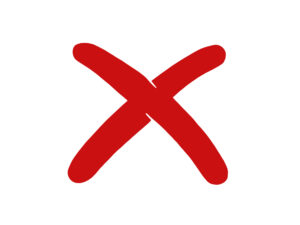Is VANS a good shoe and trainer brand for ethical consumers and shoppers?
Based on 15 key criteria- including the company’s economic activities and ethical (or unethical) business practices- our independent team of researchers assessed VANS for our Ethical Shoes and Trainers Ratings Table. VANS, however, continues to fall short of The Good Shopping Guide‘s Ethical Benchmark and cannot be regarded as a good, ethical brand for ethical consumers and shoppers.
How was VANS founded?
VANS is predominantly known for its skateboarding apparel, equipment, accessories and shoes and trainers. The company is now owned by VF Corporation and was founded in Anaheim, California. The brand also sponsors teams in BMX, motocross, snowboarding, surf, and other sports, as well as festivals and other events. VANS shoes and trainers are now synonymous with skater-style streetwear.
However, despite its popularity, ethical consumers will want to know… is VANS an ethical and sustainable brand of boots?
VF Corp’s Environmental Report
‘Scope 3’ (subsidiary brands) are included in VF Corp’s ambition to reduce CO2 emissions by 30% by 2030 (this means that VANS is part of this goal-setting). In the 2018 VF Corp Sustainability Report, the company also declares its intention to make all energy from its business activity entirely renewable. VF Corp receives a good rating for this Environmental Report. The report’s attention to detail earned it a high ranking in this research category.
Is VANS Cruelty-Free?
Whilst VANS does use leather and so is not a Vegan or Cruelty-Free brand, it does have a robust Animal Welfare Policy, including information on mulesing (VANS does not use wool from mulesed sheep).
What is mulesing? (Warning: graphic content)
Mulesing is a technique used by some sheep farmers as a means of preventing flystrike, a painful and lethal condition in which fly larvae burrow into a sheep’s woolly folds of skin and eat the flesh of the animal. These wrinkled folds are removed by cutting and stretching the skin (mulesing), however it can be painful for sheep. It would be preferable to either avoid using wool or other animal products altogether, or to breed sheep that do not have wrinkled creases in their skin, which makes them less prone to flystrike. Merino sheep are frequently mulesed because they are particularly susceptible to flystrike.
The wool industry and sheep producers are being pushed by the RSPCA to create breeds that are flystrike-resistant. We commend VANS for not using this cruel method of obtaining wool.
VANS, VF Corp and Human Rights
An imprisonment drive conducted by China’s Communist Party at the beginning of 2017 has resulted in the arrest, detention, and forced indoctrination of over 1 million Uyghurs and other Muslim minority ethnic groups in the far-western region of China. A coalition of more than 180 human rights organisations is pleading with retailers and garment manufacturers to stop aiding the Chinese government’s use of forced labour in the Uyghur Region, which violates human rights. One of the businesses that the coalition is criticising for not doing more to recognise and cut relationships with forced labour connected to the Uyghur Region is VANS.
Another Human Rights criticism of VF Corp comes from Stop Child Labour and SOMO.
In Bangladesh, the average income for a garment worker is only one-third of what is considered to be a living wage. Low income and long hours have been found to have a substantial impact on parents’ decisions to allow their children to drop out of school and work in various industries. The existence of various international apparel retailers, including but not limited to H&M, C&A, Esprit, Marks & Spencer, GAP, VF Corporation, and Kmart Australia, exacerbates this issue.
These are significant results from the Branded Childhood report, which Stop Child Labor and SOMO just released.
How could VANS improve its Ethical Score and gain Ethical Accreditation?
Despite having an excellent Environmental Report and an Animal Welfare Policy, VANS has a long way to go before reaching its full potential ethically. In particular, it needs to address human rights violations and labour abuses in its supplier chain. VANS must look into its factories, take into account the workers who make its shoes and apparel, and prioritise their needs and rights over its own profits.
If your shoes and trainers brand values ethics and sustainability, why not check out The Good Shopping Guide‘s Ethical Accreditation? Increase customer and investor confidence and stand out from the greenwash.
Ethical performance in category
GSG score
GSG category benchmark
Ethical Rating
Environment
-
Environmental Report
Good
-
Sustainable Materials
Poor
-
Fossil Fuels
Good
Animal
-
Animal Welfare
Good
-
Vegan Options
Poor
People
-
Armaments
Good
-
Code of Conduct
Good
-
Political Donations
Poor
-
Ethical Trading Schemes
Poor
-
Human Rights
Poor
-
Human Rights+
Poor
Other
-
Ethical Accreditation
Poor
-
Other Criticisms
Good
= GSG Top Rating = GSG Middle Rating = GSG Bottom Rating
